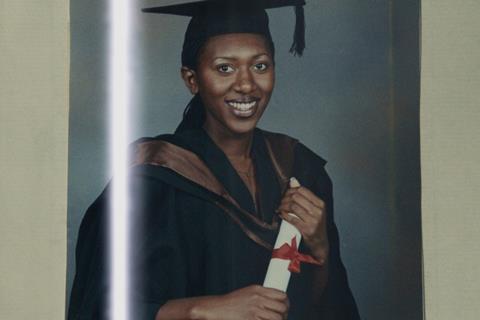Steve McQueen-produced doc shines a light on Kenya’s academic ghostwriter-for-hire industry

Dir/scr: Eloise King. UK. 2024. 98mins
The Global south sweatshops that feed the Global north’s voracious appetite for clothes have already attracted more than one committed audiovisual storyteller. But not so their intellectual equivalents. In her first feature documentary, former Vice and i-D producer Eloise King turns the spotlight on the army of academic writers in Kenya who are paid to produce essays, exam papers, scholarly articles and entire PhD theses for students, doctors and researchers in the US, UK, Australia and other territories, which the clients then pass off as their own work.
Gradually builds up a picture of a global academic system that is out of joint
The result is, some small quibbles aside, an absorbing documentary that uses electronic music, tactile camerawork and pacy cross-cutting between locations in Oxford, London, Nairobi and the United States to good cinematic effect. After its LFF debut, the film receives its international premiere in IDFA’s Frontlight section. Backed by UK broadcaster Channel 4 and executive produced by Steve McQueen, King’s assured debut will likely be consumed mostly on smaller screens, but could also score a few theatrical deals.
King’s guide in this thought-provoking exposé is Patricia Kingori, the youngest Black woman ever to be awarded a full professorship at an Oxford college. A sociologist born in Kenya who spent her childhood in St Kitts and moved to London with her sister and mother in her early teens, Kingori is the story here as much as the Kenyan ‘shadow scholars’. This double focus sometimes works well, as parallels are drawn between this new online colonialism and Kingori’s own experience battling institutional racism and sexism.
Kingori is a sympathetic subject and an engaging narrator, calling out the entitled plagiarism of her PhD thesis by a tenured professor and and dedicated to a field of study that she describes as “power and the way that it makes itself invisible.” The film also has a healthy sense of visual irony – such as when we see Kingori walking into London’s Imperial College past a statue of jowly colonial icon Queen Victoria. There are times, however, where it feels like King is so enamoured of Kingori’s quiet energy and detemination that she loses sight of her core story, which is about the quiet energy and determination of the estimated 40,000 young Kenyan university graduates who are, as a Nairobi-based American radio journalist puts it, “finding African solutions to Western problems” by acting as academic ghostwriters.
Global northern educational institutions, researchers and the media have given these workers – behind what is an estimated $7 billion industry – names that range from “shadow scholars” to “contract cheaters”. But how do they see themselves, and what do they think about what they do? Kingori travels to Nairobi to find out, interviewing writers who include a young single mother who stays up most of the night becoming an instant expert on the most diverse subjects. Assignments, which are bid for online, can have deadlines as tight as a few hours. Most of the fee ends up in the pockets of middlemen, but what’s left over still counts for something in a country where the average yearly income is little more than $5,000.
Clients are heard only in voice-over, most tellingly in the case of a Californian student who reveals she sold nude photos of herself to raise the $300 required to pay for a dissertation to be written in her name.
Piece by piece, leaving the viewer to join many of the dots, King gradually builds up a picture of a global academic system that is out of joint. Kenya produces around a million graduates a year, many of whom end up unemployed while, across the globe, students with little appetite or aptitude for study use their credit cards to relieve the pressure heaped on them by parents and professors.
What happens when a medical professional whose qualifications are based on a lie puts a patient’s life at risk is beyond the film’s remit: fiercely and proudly Afro-centric, The Shadow Scholars throws the ethics question back at the feet of the clients, not the resourceful suppliers. It also paints US and UK university “academic integrity” officers as the enforcers of what is, in the end, an education industry that makes a lot more than the shadow scholars of Kenya – scholars who would excel at those same universities if only they were given the opportunity to attend them.
Production companies: White Teeth, Lammas Park
International sales: Dogwoof sales@dogwoof.com
Producers: Eloise King, Anna Smith Tenser, Bona Orakwue, Tabs Breese
Cinematography: Jermaine Edwards, Justin Ervin, Joel Honeywell, Jonas Mortensen, Anna Patarakina
Editing: Maya Daisy Hawke, Cinzia Baldessari, Julian Quantrill
Music: Keir Vine, Nyokabi Kariuki






![The Brightest SunScreen[Courtesy HKIFF]](https://d1nslcd7m2225b.cloudfront.net/Pictures/274x183/3/5/0/1448350_thebrightestsunscreencourtesyhkiff_312678.jpg)















![The Brightest SunScreen[Courtesy HKIFF]](https://d1nslcd7m2225b.cloudfront.net/Pictures/100x67/3/5/0/1448350_thebrightestsunscreencourtesyhkiff_312678.jpg)

